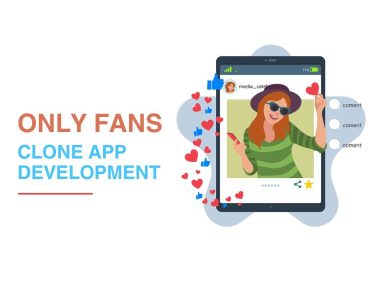Introduction: Threads’ Data Collection Practices
In the realm of social media, the emergence of new platforms often sparks debates about data privacy and security. Threads, Meta’s latest social media venture, has taken the stage as a competitor to the likes of Twitter. But as users flock to this platform, questions arise: Is Threads’ data collection as problematic as it’s being portrayed? In this article, we delve into the details of Threads’ data collection practices to shed light on the matter.
Understanding Threads and Its Rise as a Competitor
Since its launch on July 6, 2023, Threads has rapidly gained attention as a contender in the social media arena. Functioning similarly to established platforms, Threads allows users to post text, images, videos, and engage with other users’ content. Its features encompass liking, sharing, and direct messaging, fostering an interactive online environment. However, as Threads gains traction, concerns have emerged about its approach to user data.
Threads’ Privacy Policy: What Information Is Collected?
To understand the extent of Threads’ data collection, a deep dive into its privacy policy is necessary. This document outlines the types of information the platform gathers from its users. Located in the Instagram Help Center, Threads’ privacy policy presents a comprehensive list of data categories:
User Activity
Profile Information
Third-Party Information
App, Browser, and Device Information
Within the Threads app, users can access a breakdown of the collected data, revealing the platform’s commitment to transparency.
Breakdown of Threads’ Data Collection Practices
User Activity and Interaction
Threads’ data collection journey commences with in-app activity tracking. From content creation to content consumption, Threads records user interactions comprehensively. Furthermore, metadata associated with content is also included in this scope. Meta’s overarching privacy policy further emphasizes its tracking of ad engagement, feature utilization, and camera roll activity. Even the realm of direct messages doesn’t escape Meta’s data grasp, as sent and received messages are stored.
Profile Information and Instagram Link
Personalization is key to Threads’ appeal, and this is facilitated through the collection of profile information. This encompasses elements like names, email addresses, and settings preferences. Notably, since Threads is intricately linked with Instagram, certain profile information is sourced from Instagram accounts. The intertwining of Threads and Instagram highlights the interconnected nature of these platforms.
Third-Party Integration and Information
Threads’ connection with Instagram extends to third-party integration. The platform acknowledges its utilization of Instagram data, leveraging profile, activity, followers, and connections information. Interaction with Threads content via third-party services triggers the collection of additional data, including usernames, profile pictures, and IP addresses. This connectivity underscores the seamless data flow across platforms.
Device Information and Collection
Threads’ data collection landscape extends to devices and their usage patterns. Meta’s Privacy Policy elaborates on the information sourced from devices, spanning hardware and software specifics, user behavior, device identifiers, and signals. The scope even encompasses network details, location-related data, and app performance insights. The comprehensive nature of this collection is undeniably robust.
Location Data Collection: A Cause for Concern
One of the noteworthy aspects of Threads’ data collection pertains to location-related information. Despite the deactivation of location sharing, the platform captures data like IP addresses, residence cities, and current locations. Meta rationalizes this practice by emphasizing personalization, security, and anomaly detection. However, the retention of location data raises valid privacy concerns.
Data Sharing: How Threads Shares Your Information
Threads’ approach to data sharing is twofold: certain data is shared publicly, and some is disclosed to third-party services. Information such as posts, likes, and replies find their way into the public domain. Additionally, elements like names, usernames, profile pictures, and bios are made public. This sharing paradigm aligns Threads with the broader trend observed across social media platforms.
Considering the Use of Threads: Weighing the Pros and Cons
While data collection is a common facet of social media platforms, Threads’ practices warrant consideration. Comparisons with industry giants like Facebook, Instagram, TikTok, and Twitter highlight both similarities and distinctions. Users must evaluate whether the benefits of Threads outweigh the potential privacy trade-offs inherent in its data collection approach.
Managing Your Threads Account and Privacy
Users seeking control over their Threads experience face certain limitations. Deleting a Threads account necessitates the deletion of the associated Instagram account. However, temporary deactivation remains an option. These dynamics underscore the intricate integration of Threads with other Meta services.
Threads’ Data Collection in Perspective: Comparable Platforms
Contextualizing Threads’ data collection within the broader landscape of social media unveils its position among comparable platforms. While its data collection practices align with prevailing norms, heightened transparency could bolster user trust.
Conclusion: Threads’ Data Collection and Privacy Implications
Threads’ data collection practices, while comprehensive, align with industry standards. Users navigating the world of social media should remain mindful of the trade-offs between personalized experiences and data privacy. In a digital age where data is a valuable currency, informed decisions about platform usage empower individuals to navigate the online landscape responsibly.













